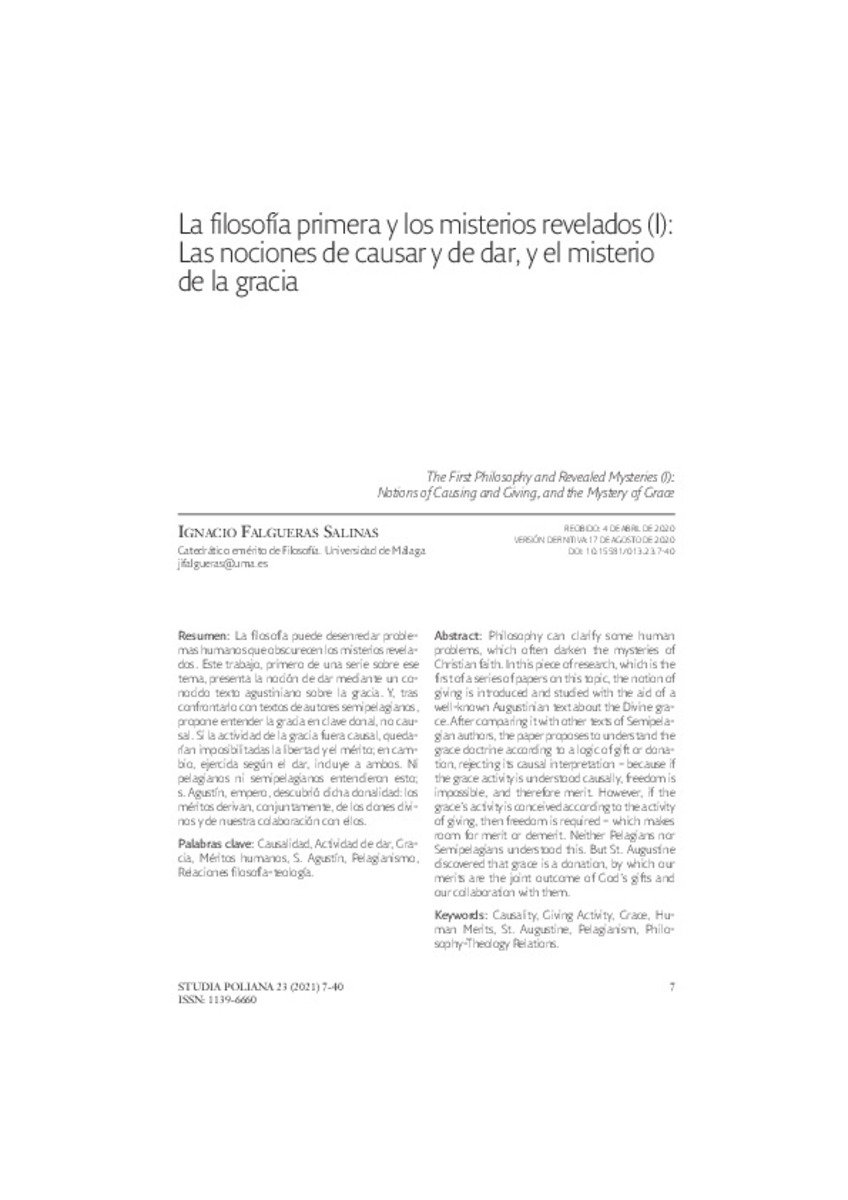La filosofía primera y los misterios revelados (I): Las nociones de causar y de dar, y el misterio de la gracia
Other Titles:
La filosofía primera y los misterios revelados (I): Las nociones de causar y de dar, y el misterio de la gracia
Keywords:
Causalidad
Actividad de dar
Gracia
Méritos humanos
S. Agustín
Pelagianismo
Relaciones filosofía-teología
Publisher:
Servicio de Publicaciones de la Universidad de Navarra
Citation:
Falgueras-Salinas, I. (Ignacio). "La filosofía primera y los misterios revelados (I): Las nociones de causar y de dar, y el misterio de la gracia". Studia Poliana. (23), 2021, 7 - 40
Statistics and impact
0 citas en

Items in Dadun are protected by copyright, with all rights reserved, unless otherwise indicated.








